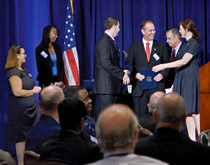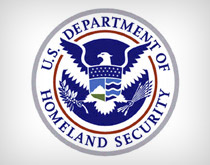The young college graduate takes a job at a top intellectual property law firm in Washington, D.C. Paul Tremer is exploring the idea of becoming an attorney, believing it will let him pursue his interest in public policy. But at the firm, he finds that he’s less enamored by the law than he is with the technical achievements of his firm’s clients—scientists, inventors, software and pharmaceutical companies.

He forgoes law school, choosing instead to pursue his interests in technology and policy by attending Carnegie Mellon’s Heinz College. There, he becomes fascinated with network security for organizations, which are increasingly embracing the Internet. After earning his MS in 1999, he returns to the nation’s capital to work for private businesses and federal agencies to secure their transactions.
Then comes September 11, 2001. Online security was already important to government, industry, and consumers—but now it’s vital, affecting everything from police communications to power plants to large financial transactions. “There was a huge emphasis placed on protecting what’s valuable to us, so that as a country, as a world, we could remain free,” he says.

Eventually, Tremer starts work at a contractor that sends him to the U.S. Department of Homeland Security, Chief Information Security Office. There, he has the responsibility of anticipating threats to the nation’s telecommunications and networks—and outsmarting them. His work keeps communications and online transactions secure for federal law-enforcement, transportation, immigration, disaster-management, and other agencies.
In recognition of his homeland security contributions, Tremer was recently honored as the U.S. Department of Homeland Security Information Systems Security Officer of the Year.
—Lorelei Laird (DC’01)



